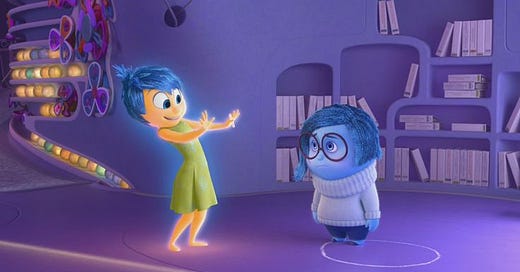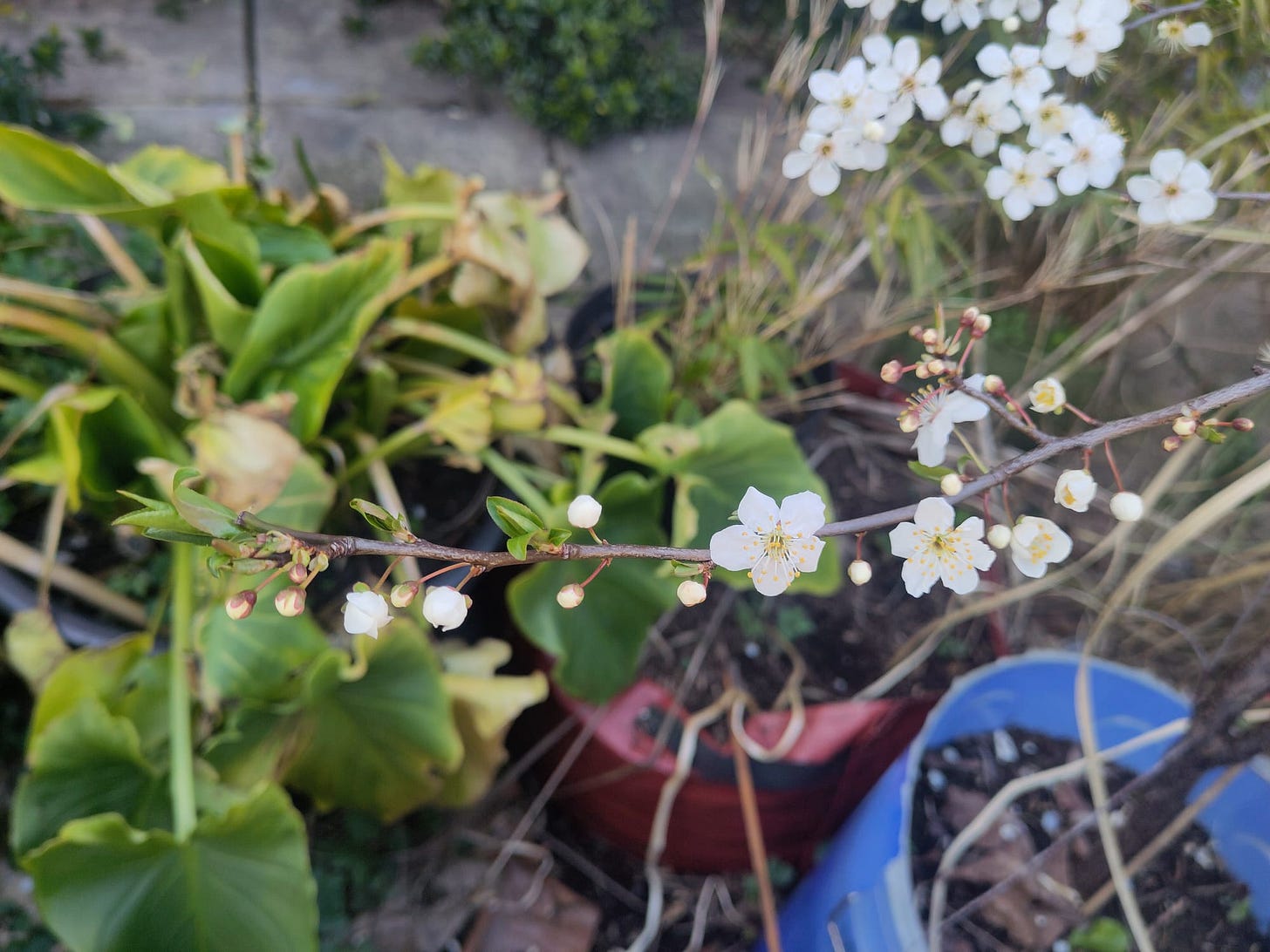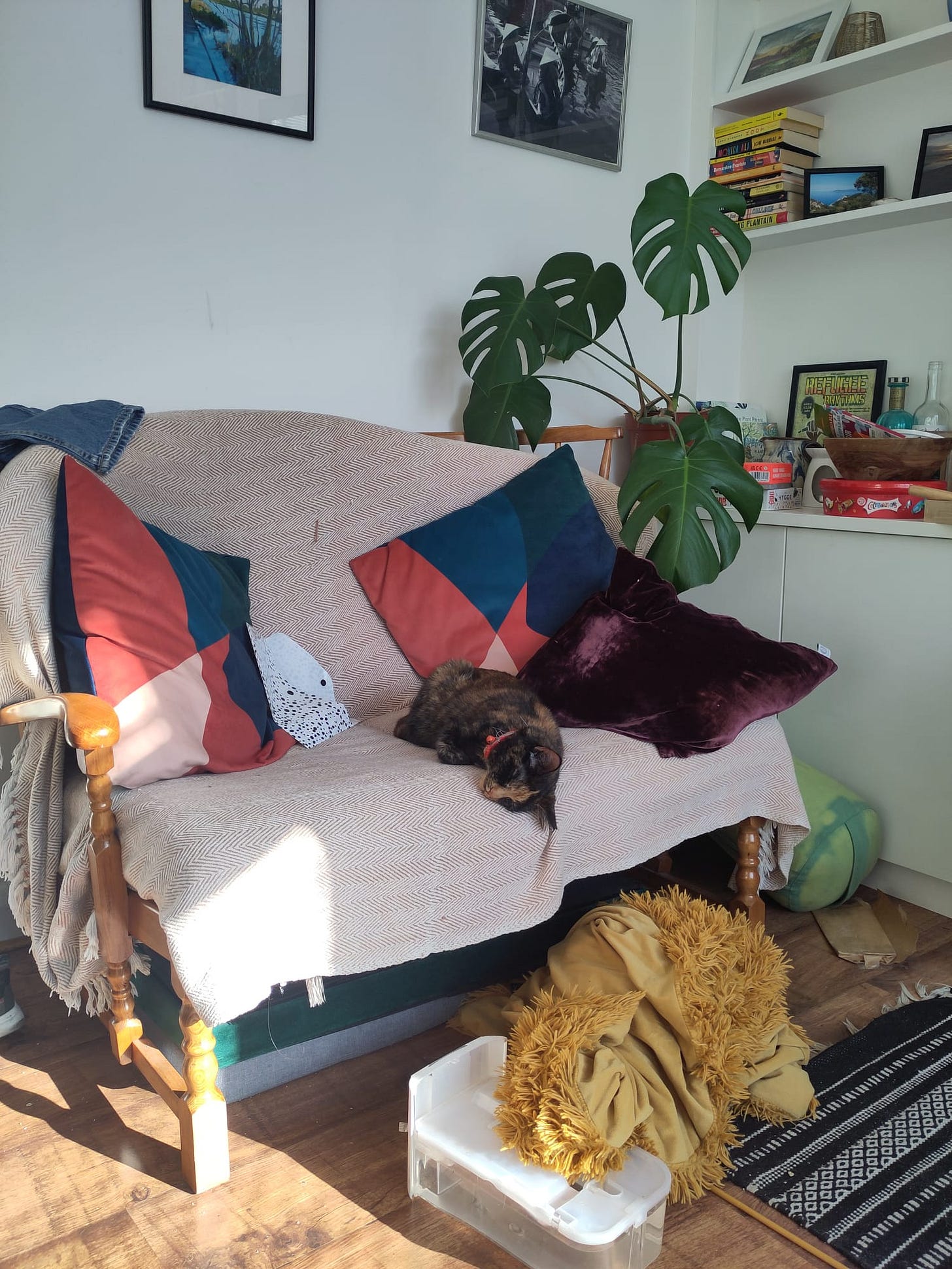“Oh! Sadness! I have a super important job, just for you! …[Joy draws a tiny circle around where Sadness is standing.]...This is the circle of sadness. Your job is to make sure that all the sadness stays inside of it!”
This is what the character Joy declares to her fellow character, Sadness, near the start of the first Inside Out film (if you have no idea what I’m on about, check out this clip).
Joy and Sadness live, along with other characters like Fear, Disgust and Anger, inside the head of a pre-teen girl called Riley. Riley’s family have just moved across the US, and Riley is about to have her first day at a new school. Joy is running the show, and (as you see in the clip) is directing the other characters to fulfil their roles. But Joy doesn’t really know what to do with Sadness - she doesn’t see any value in what she has to offer. So her solution is to tell Sadness to stand within a small circle, and focus on just staying inside it, so that she doesn’t spread any sadness to the rest of the system.
Needless to say, it doesn’t go exactly to plan.
And yet it’s what many of us do, so much of the time - it’s human nature. And we do it unconsciously a lot of the time - not realising that we have particular feelings, or particular parts of us that are carrying those feelings, that other parts of us fear will be overwhelming and unmanageable. So without realising we’ve done it, we push those ‘difficult feeling’ parts of ourselves down - we exile them - shut them away so that they won’t come out and ‘ruin things’.
But the trouble is that it’s hard to keep them shut away without that having some other impact. Like I quoted in this previous post,
“Emotions are tunnels. You have to go all the way through the darkness to get to the light at the end.”
- from Emily Nagoski in the book ‘Burnout’.
When we shut certain emotional experiences away, we get stuck in them. That’s not to criticise the process of doing it - sometimes we are not ready to deal with a certain feeling, and there is wisdom in that unconscious decision to put a feeling away. Think about grief - some emotions are too huge for us to process all in one go.
And there is also wisdom in coming back, when the time is right, to gently explore the feelings and create a safe enough environment for them (the parts holding the emotion, and the parts that were scared of hearing those feelings) to come out and be heard.
I’m just going to pause here to point out that what I’m describing here is the approach laid out in Internal Family Systems (IFS), a psychotherapeutic approach which can also be used in coaching (and which I do use, as an IFS-informed coach). To give a brief explainer, IFS takes systems theory (i.e. understanding how people exist within systems, such as families, social groups and organisations, and take on different roles in order to serve the needs of the system), and applies it to what’s happening internally for each of us, as individuals.
The founder of IFS, Dick Schwartz, was originally trained as a family therapist, and went on to work as an individual therapist, initially in an eating disorders service. He found that as he explored, with a curious and open mind, the experiences of the patients he met, he was consistently hearing them describe their experience in terms of different parts of themselves. For example, one part drove them to binge, while another drove them to restrict eating. Over the 40-plus years since IFS theory was put together, and with thousands of therapists working with all different client groups, it became clear that this idea of our minds, or our internal worlds, being made up of different parts, is a universal experience. When we think about our inner critic, this is a part. In fact, most of us have many different critical parts, along with many different child parts, including parts that - much like in the example described earlier - have been exiled. This is part of the human experience.
The key insight that IFS brings, in contrast to some other approaches that in other ways look similar, relates back to that attempt by Joy to keep Sadness in the circle. And there’s something else from that clip from the film that helps illustrate this too.
In it, you see Joy first instructing other parts on what their role will be that day. Fear needs to make a list of any possible disaster that could happen on the first day at school, while Disgust needs to make sure that Riley will make a good impression on her peers (which Disgust is good at, since she’s so tuned in to what causes social repulsion). Joy is going to take charge of running the show. Anger doesn’t get given any role, and - as we know - Sadness gets asked to stay inside the circle.
So some of the parts - Fear, Disgust and Joy - have had their value recognised, and are working together to contribute to their shared aim of supporting Riley through life. But Anger and Sadness - who Joy doesn’t seem to really understand or see the point of - do not seem to be valued in the same way. Without giving too much of a spoiler, there is some learning that happens in this regard, through the course of the film… (ooo it’s so good, please let me know if you watch it/have watched it!).
And this so beautifully illustrates the central ethos of IFS, which is that all parts are valuable. All parts are here because they are part of our internal system and they have a unique insight or perspective that is valuable. In the film, Sadness had something important to share about what Riley was going through - that might help her system to understand and process this huge change in her life.
We won’t always know straight away what it is that some of our parts have to offer - in fact, some can seem (and can be) deeply destructive at first glance. But if we’re able to get to know them, and explore their experience with curiosity and openness, we’re often able to learn of the caring intention behind the chaos. For example, our inner critics are often doing what they do because they want to protect us against rejection from others, or against overwhelm, disappointment and so on.
If we can understand the fears that are driving those protective behaviours, and we can start gaining the trust of our inner critics (or other protective parts), we can support them to start relinquishing some of their behaviours that have become counterproductive. Once freed from carrying that responsibility, along with the misconception about your ability to cope without them doing it, they are able to get back into a more relaxed state and a more supportive (and likely more enjoyable) role.
We wouldn’t be able to do that if we were simply labelling these parts as ‘bad’ or as the ‘shitty committee’ that I mentioned in this article for the Life Coach Directory. Equally, if we just ignore those parts, they will continue to hold onto their fears, and will likely flare up in panic at some point further down the line. This is why recognising the value in all of our parts, and approaching them with curiosity, respect and a willingness to listen, is so deeply impactful.
What I’ve just described is one of the pivotal elements that makes IFS such an effective model for transformation. I’m going to be talking more about this at a webinar on the same topic, which I’m running twice this month (first run is tonight!). Check out the dates below and book via Eventbrite:
In case the image doesn’t load, details here1.
Also - no-one has bagsied the coachee spot in the coaching demonstration sessions yet, so if you would like to take one of those, let me know!
I was thinking that the title of this post requires me to deliver on some kind of Dirty Dancing metaphor (because ‘Nobody puts baby in a corner’ is a quote from that film), but after googling for memes and reflecting on the problematic nature of 34 year-old Patrick Swayze dating a teenager I think I’ll just leave that rock relatively unturned and instead share some lovely photos of spring beginning to spring here in London, and Spooky (my cat) once again sharing her expertise on how best to luxuriate.
Happy March!
Miriam xx
Session
Time (GMT - UK)
Time (Eastern Time - US)
Discovering The Magic of Transformational Coaching
Thurs 13th Mar 6.30pm GMT
Thurs 13th Mar 2.30pm ET
Inside Out: How Internal Family Systems creates transformation in coaching.
Thurs 6th Mar 6pm GMT
Thurs 6th Mar 1pm ET
Tues 18th Mar 7pm GMT
Tues 18th Mar 3pm ET
Transformational Coaching Demonstration
Fri 7th Mar 5pm GMT
Fri 7th Mar noon ET
Thurs 20th Mar 6.30pm GMT
Thurs 20th Mar 2.30pm ET










